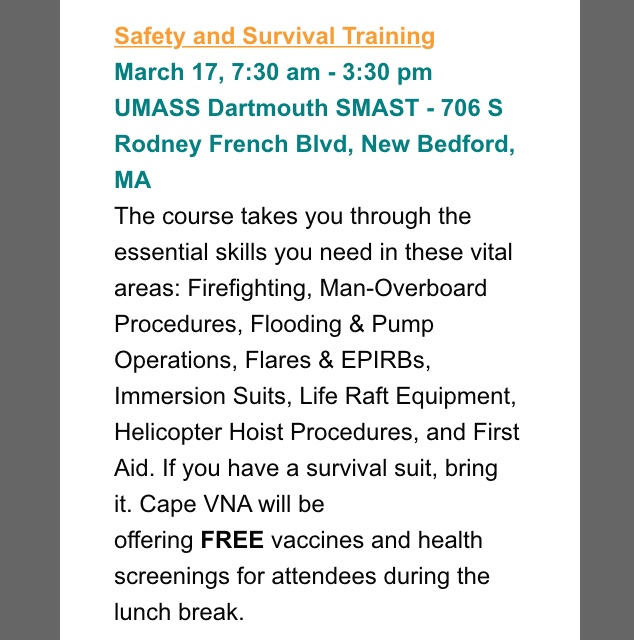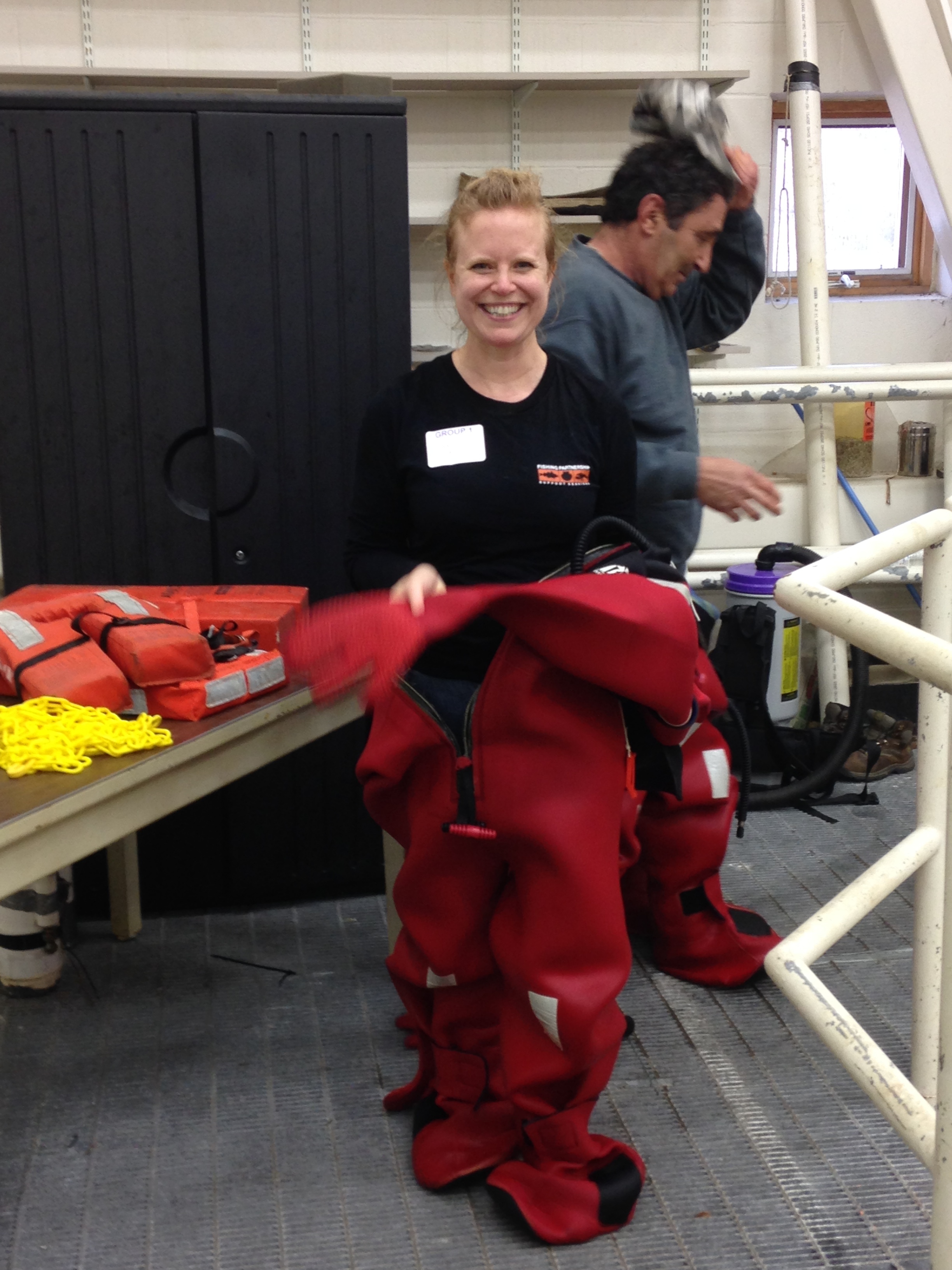New Bedford, MA
Eleanor Roosevelt said, "Do one thing every day that scares you." City Year said, "Do 3 squishy things a day...You know that you are truly leading when you do at least three things a day that make you a little bit uncomfortable." Word.
Any evaluator worth her/his salt will tell you that time out in the field, seeing our programs in action, is invaluable. We can experience, or at least get a sense of, what it’s like to be a staff member, to be a participant in the program, to be a piece of data moving through different processes and systems, and see the contexts that interact with all. Walking in others' shoes offers new perspectives, and some of the top design firms in the world like IDEO stress the importance of design informed by empathy.
This week, I got to join two trainings with Fishing Partnership Support Services, an innovative community health program. Long hours, strenuous labor, time away from families, harsh weather, and inconsistent income are just a few of the stressors affecting the health of fishing workers and their families. Fishing Partnership employs trusted women from the fishing community as insurance Navigators, provides health interventions (e.g., vaccines, health, and dental screenings), safety trainings, and financial planning and stress-reduction workshops. Program activities are located harborside, where fishing workers and families are.
On Wednesday, as part of their monthly staff meeting, the team and I participated in Narcan training in New Bedford. Opioid addiction and overdoses are affecting communities across New England, including my own. Narcan can prevent deaths by overdose, and Fishing Partnership wanted to learn more about it and be ready to respond, if ever needed, just as they ensure staff have CPR training. As we left the training, this news story broke about heroin arrests in New Bedford, underscoring the need.
Then, on Thursday, I went through this Safety & Survival Training with about 40 fishermen.
There are more than 11,000 fishing workers and families in New England, and it’s a big part of our economy, but you may not know that:
- Commercial fishing is one of the most dangerous occupations in the United States. Groundfish fishermen in the Northeast are 37 times more likely to die on the job than police officers.
- Safety equipment in good order, precautions, and hands-on practice drills can make a life-saving difference. That’s why Fishing Partnership offers free trainings like the one I joined. But until two fishermen decided to do something in 2005, after losing too many of their friends, these kinds of trainings were not offered in New England.
- And there's evidence that they work. Efforts in Alaska, pioneered over the last 22 years by the Alaska Marine Safety Education Association (AMSEA), resulted in a dramatic 67% decline in commercial fishing deaths in that state, and in the past 16 months there have been 0 fatalities there.
I got a refresher in CPR, learned about emergency evacuation procedures, MacGyvered repairs to simulated leaks in a boat, put out a fire, plunged into water in an immersion suit and scrambled/got pulled into a small life raft for 6.
I got to see behind the scenes of the effort, activities, and care that the Fishing Partnership staff put into the training. I got to learn how to make a May Day call correctly. I got to experience what the training is like for the fishermen. I saw their reactions, their genuine engagement, and how much they appreciated the learning.
I got to push myself out of my day to day and comfort zone. And I got to crack myself up thinking things like, “Some evaluators help their clients put out fires. Bee’s Knees puts out FIRES.”
So, if you are an evaluator, make sure you take time to get out there and spend time with your programs, especially if you are helping to build evaluation tools, processes, and capacity. If you are a program, don’t forget to invite evaluators to really experience your work; sometimes we nerds can be a little shy, but it's good for all of us to get squishy.



